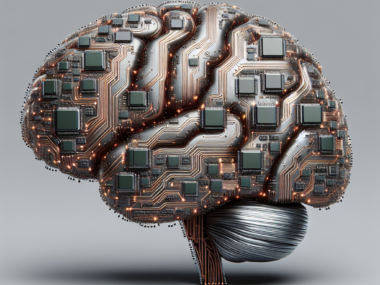In the age of digital transformation, artificial intelligence (AI) stands out as a powerful catalyst for change across various sectors. By leveraging complex algorithms, AI is reshaping decision-making processes, enhancing efficiency, and providing insights that were previously unattainable. As industries embrace these advancements, they not only optimize operations but also usher in an era of innovation and improved outcomes.
The Role of AI Algorithms in Decision-Making
At its core, decision-making relies on the ability to analyze data, discern patterns, and predict outcomes. Traditional methods often involve manual processes that can be time-consuming, error-prone, and limited in their capacity to process large datasets. AI algorithms, particularly those using machine learning and deep learning techniques, revolutionize this approach by automating data analysis and delivering real-time insights.
These algorithms can sift through vast amounts of data from diverse sources, including social media, customer transactions, and sensor readings, to identify trends and anomalies. By doing so, they enable organizations to make informed decisions swiftly and accurately, significantly reducing the risk of human error.
Industry-Specific Transformations
1. Healthcare
In the healthcare sector, AI algorithms are redefining patient care and operational efficiency. For instance, predictive analytics powered by AI can anticipate patient admissions, helping hospitals allocate resources more effectively. AI can also analyze medical images with remarkable accuracy, assisting radiologists in diagnosing conditions such as cancer at earlier stages.
Moreover, personalized medicine is on the rise, with AI algorithms analyzing genetic information to tailor treatments to individual patients. This precise approach not only improves outcomes but also streamlines research and development in pharmaceuticals.
2. Finance
The finance industry has been quick to adopt AI algorithms for risk assessment and fraud detection. Machine learning models can analyze transaction patterns in real-time to flag unusual activities, reducing the likelihood of financial crimes. Credit scoring is another area seeing disruption; AI can evaluate a potential borrower’s creditworthiness more accurately by incorporating unconventional data points, leading to fairer lending practices.
Investment firms utilize algorithms for high-frequency trading, assessing market conditions and executing trades faster than any human trader could. This not only maximizes profits but also optimizes portfolio management by continually adjusting strategies based on market trends.
3. Supply Chain Management
Supply chains have become increasingly complex, necessitating advanced decision-making tools. AI algorithms enhance logistics by predicting demand and optimizing inventory levels, enabling companies to reduce operational costs and improve service levels. Furthermore, AI-driven predictive maintenance helps organizations identify potential equipment failures before they occur, minimizing downtime and extending the lifespan of critical assets.
4. Marketing and Sales
AI is revolutionizing marketing strategies through data-driven decision-making. Algorithms analyze consumer behavior, preferences, and demographics, allowing companies to target campaigns more effectively. Personalization has become a key focus, with AI tailoring content to individual users, significantly increasing engagement and conversion rates.
Sales teams leverage AI for lead scoring and customer relationship management (CRM). AI-powered systems analyze past interactions and behaviors to identify high-potential leads and suggest the optimal times for follow-ups, thus enhancing sales productivity.
Challenges and Considerations
Despite the numerous advantages AI algorithms offer, their implementation comes with challenges. Data privacy concerns are paramount, as organizations must navigate regulations while managing sensitive information. Moreover, there is the risk of algorithmic bias, where models may unintentionally reinforce existing prejudices in decision-making processes.
Furthermore, businesses require a cultural shift to embrace AI fully. This includes training staff to work alongside AI tools, fostering a data-driven mindset, and continuously monitoring AI systems to ensure they align with organizational values and objectives.
The Future of Decision-Making
As AI technology continues to evolve, its impact on decision-making will only deepen. The integration of AI with emerging technologies like blockchain and the Internet of Things (IoT) will further enhance data interoperability and create more robust decision-making frameworks.
In summary, AI algorithms are fundamentally transforming how industries make decisions. By harnessing the power of advanced analytics, organizations are achieving unprecedented levels of efficiency and innovation. As we look to the future, embracing AI thoughtfully will be crucial for businesses seeking to navigate an increasingly complex landscape and maintain a competitive edge. The revolution in decision-making has begun, and its trajectory is set to reshape industries across the globe.











